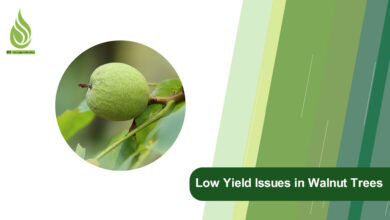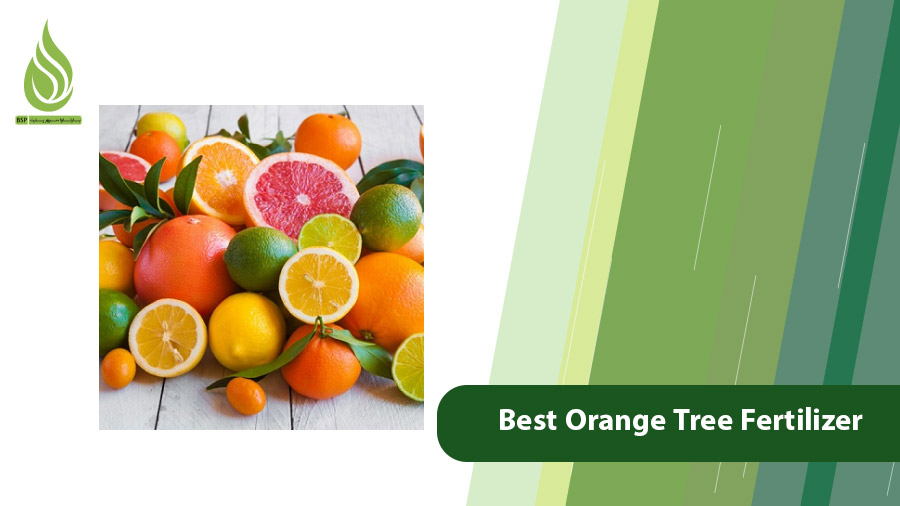
Best Orange Tree Fertilizer: Which one is Best for Citrus?
Orange trees and other citrus varieties require proper fertilization for healthy growth and fruit production. Selecting the right citrus fertilizer can greatly influence the quality of the fruit and the overall health of the tree. To effectively plan your fertilization strategy for orange trees and other citrus fruits, it’s essential to understand the different types of fertilizers and their specific characteristics.
In this article, we’ll explore the best fertilizers for citrus trees and highlight key factors to consider when choosing the right product. We’ll also discuss the optimal timing for fertilization to help you maximize the quality and quantity of your harvest.
Why is Fertilizing Citrus Trees Important?
Citrus fruits are celebrated for their sweet-tart flavor, distinctive aromas, and impressive nutritional benefits. In the United States, oranges, lemons, grapefruits, and limes are among the most popular citrus fruits. These fruits are excellent sources of vitamin C, fiber, and antioxidants, supporting immune health, enhancing digestion, and lowering the risk of various diseases.
Choosing the right fertilizer for your citrus trees is crucial for several reasons:
- Meeting Nutritional Needs: Citrus trees, including oranges, require essential nutrients like nitrogen, phosphorus, and potassium for optimal growth and fruiting. Selecting the appropriate fertilizer ensures these nutrients are available.
- Enhancing Fruit Quality: Proper fertilization not only promotes tree growth but also directly impacts the quality, taste, and color of the fruit.
- Disease Prevention: The right fertilizer can strengthen the tree’s immune system, making it more resilient to pests and diseases. Healthier trees are generally less prone to health issues.
- Improving Soil Structure: Organic fertilizers can enhance soil structure, increasing its ability to retain water and nutrients.
- Boosting Fruit Production: A well-nourished orange tree can produce a higher yield, benefiting gardeners by increasing their income and productivity.
- Regulating Soil pH: Certain fertilizers can help maintain the ideal soil pH for citrus trees, which should range between 6 and 7.
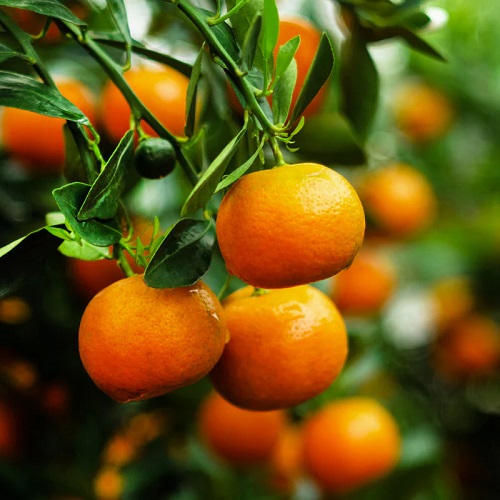
Best Fertilizers for Citrus Trees
Citrus trees require a balanced mix of macro and micronutrients for optimal growth and productivity. Many soils may lack these essential nutrients, so gardeners should regularly amend the soil to meet their trees’ needs. The key fertilizers for strengthening orange, tangerine, lemon, and other citrus trees include:
- Nitrogen Fertilizer: Nitrogen is crucial for leaf and branch growth, enhancing the tree’s greenness. Ammonium sulfate is one of the best sources of nitrogen for citrus trees.
- Phosphorus Fertilizer: Phosphorus promotes root development and improves fruit quality. It also plays a role in the flowering process. Superphosphate is a popular phosphorus-rich fertilizer.
- Potassium Fertilizer: Potassium strengthens the tree’s immune system and enhances fruit flavor and quality. Potassium sulfate is a commonly used potassium fertilizer.
- Magnesium Fertilizer: Magnesium is vital for photosynthesis and chlorophyll production, contributing to fruit quality and root growth. A magnesium deficiency can lead to yellowing leaves and reduced yield.
- Sulfur Fertilizer: Sulfur helps to adjust soil pH and decrease acidity, which aids in the absorption of nutrients such as iron and magnesium. It also bolsters the tree’s immune system and improves fruit quality.
- Calcium Fertilizer: Calcium is essential for strengthening cell walls and improving fruit structure. It helps prevent issues like blossom end rot and yellowing leaves. However, calcium has low solubility, so it’s best not to mix it with other fertilizers.
- Micronutrients: Micronutrients are essential as a fruit tree fertilizer. They are critical for various metabolic processes, despite being needed in small amounts. Essential micronutrients for citrus trees include zinc, iron, manganese, copper, and boron.
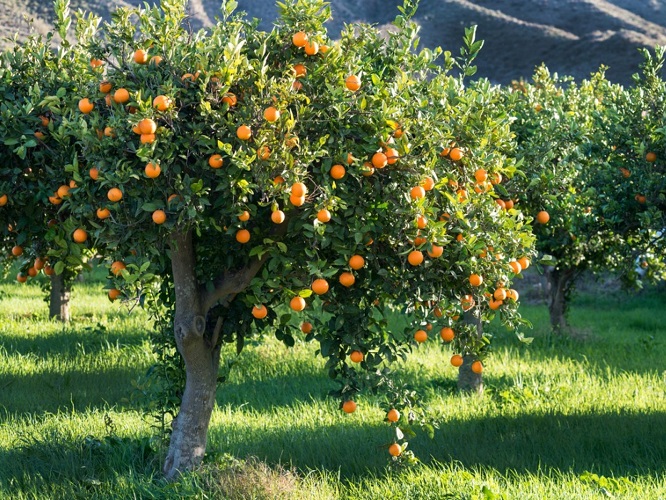
Which Fertilizer Do Citrus Fruits Respond to Best?
Citrus fruits respond most positively to nitrogen fertilizers compared to any other type. Nitrogen is a crucial element for plant growth and development, and it offers several benefits for citrus trees:
- Enhanced Growth: Nitrogen significantly boosts the greenness and overall growth of trees. It is essential for chlorophyll production, which is vital for photosynthesis.
- Increased Energy for Fruit Production: With improved leaf growth and health, trees can harness more energy for fruit production. This, in turn, enhances both the quality and quantity of the fruit.
- Improved Metabolism and Disease Resistance: Nitrogen supports the formation of enzymes and proteins that play critical roles in metabolism and help trees resist diseases.
- Accelerated Flowering and Fruiting: When used correctly, nitrogen fertilizers can speed up the flowering and fruiting processes.
One effective nitrogen fertilizer for citrus trees is ammonium sulfate. This fertilizer not only provides nitrogen but also sulfur, which is often needed in garden and agricultural soils. In regions like Iran, where sulfur deficiencies are common, buying ammonium sulfate can help manage soil pH while supplying both nitrogen and sulfur. However, if soil tests indicate that sulfur is not needed, you can opt for fertilizers that contain only nitrogen.
When applying fertilizers, especially those with nitrogen, it’s essential to monitor both the quantity and timing of application. Over-fertilizing can harm trees rather than help them, leading to decreased fertility. Excessive nitrogen can cause rampant leaf growth at the expense of fruit production, weaken tree bark, and make trees more susceptible to pests and diseases. The primary goal of nitrogen fertilization is to promote healthy growth, so it’s advisable to reduce nitrogen application as the flowering season begins. The ideal times to apply nitrogen fertilizers like ammonium sulfate are late winter and early spring.
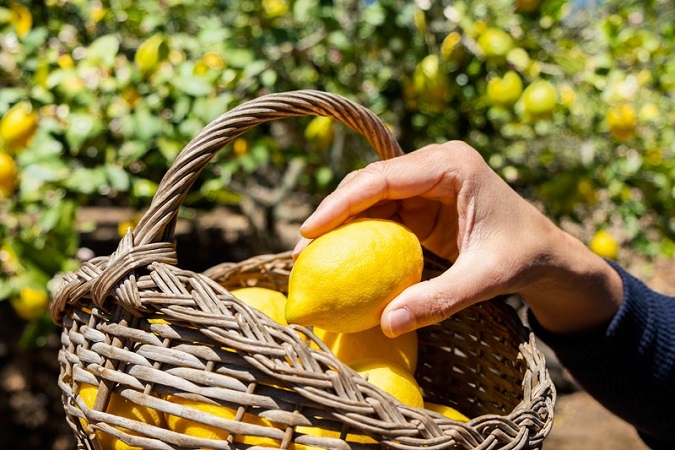
Key Points for Choosing the Best Fertilizer for Citrus Trees
Selecting the best fertilizer for citrus trees involves several important considerations:
- Conduct a Soil Test: Before fertilizing, test your soil to determine its nutrient deficiencies and pH level. The ideal pH for orange and citrus orchards is between 6 and 7.
- Determine the Proper Amount: The amount of fertilizer required will depend on the tree’s age. Do thorough research before proceeding with fertilization.
- Follow Package Instructions: Always adhere to the instructions provided on the fertilizer package.
- Timing Matters: The appropriate time for fertilization varies based on the type of fertilizer and the growth stages of the tree. We will elaborate on the timing further below.
- Fertilizer Application Methods: Fertilizers can be applied using surface or deep methods. For surface application, spread the fertilizer around the base of the tree. In deep fertilization, work the fertilizer into the soil to ensure that the roots can easily absorb the nutrients.
- Watering After Application: Proper watering after applying fertilizer is crucial. It helps the fertilizer penetrate the soil, allowing the roots to absorb the nutrients effectively.
Organic vs. Chemical Fertilizers: Which Is Better for Orange Trees?
Organic manure, such as compost, animal manure, and vermicompost, are beneficial for growing citrus orchards. They improve soil structure, enhance nutrient content, and gradually release nutrients to the trees. Organic fertilizers also support beneficial soil microorganisms, contributing to a healthier soil ecosystem. However, their effects tend to be slower to manifest compared to chemical fertilizers, and they may not provide sufficient nutrients for young trees. Therefore, citrus trees often require additional mineral fertilizers.
Mineral fertilizers, available in both solid and liquid forms, are quickly absorbed and yield faster results. They offer a precise composition of nutrients tailored to the specific needs of citrus trees. However, the application of chemical fertilizers must be controlled and precise.
Overusing chemical fertilizers can lead to significant drawbacks. Excessive application can reduce the productivity of orchards and agricultural lands, and it may also contribute to water and soil pollution and decreased biodiversity. Balancing the use of organic and mineral fertilizers is key to maintaining a healthy citrus orchard.
The most effective fertilizer for citrus trees combines both organic and chemical options. Using organic fertilizers as a foundation and supplementing with chemical fertilizers to address immediate nutrient needs can yield optimal results. By assessing the specific conditions of your garden and the requirements of your soil, you can determine the best fertilizer strategy.
The Right Time to Fertilize Citrus Trees
The timing of fertilization for citrus trees varies by season, depending on the tree’s needs and growth stage.
Spring: Fertilization during this season aims to provide the necessary energy for new growth, flowering, and root development. Spring is the ideal time to apply nitrogen fertilizers. Additionally, fertilizers containing phosphorus should also be added to the soil in the spring. The amount of nitrogen fertilizer needed depends on the tree’s age. For citrus trees younger than 5 years, fertilization with nitrogen should occur every 15 days from late March to July. For trees older than 5 years, three applications of nitrogen fertilizer throughout the growing season are typically sufficient.
- Summer: The focus of fertilization in summer is to support fruit production. During this period, potassium-rich fertilizers are most commonly used to enhance fruit quality.
- Autumn: In the fall, the goal of fertilization is to strengthen the tree’s immune system and improve fruit quality. Since trees should not develop new buds during this season, it is best to avoid applying nitrogen fertilizers to orange trees and other citrus varieties in the autumn.
- Winter: During winter, citrus trees enter a resting phase. Organic fertilizers are particularly beneficial during this time, as they help improve soil structure and enhance the tree’s resistance to cold temperatures.
By following these seasonal guidelines, you can ensure that your citrus trees receive the nutrients they need at the right times for healthy growth and fruit production.
